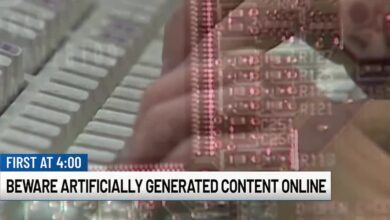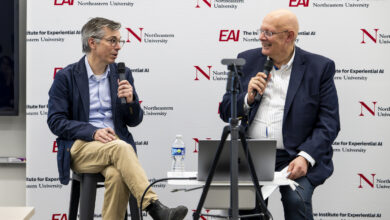The Council of Ministers approves the bill on artificial intelligence

The Council of Ministers, which met today, Tuesday 23 April 2024 at Palazzo Chigi, under the presidency of the President Giorgia Meloni, secretary, the Undersecretary to the Presidency of the Council Alfredo Mantovano, on the proposal of President Giorgia Meloni and the Minister of Justice Carlo Nordio, approved, with the provision of the request to the Chambers for prompt scheduling in compliance with the regulations of the two houses of Parliament, a bill for the introduction of provisions and delegation to the government regarding artificial intelligence.
The bill identifies regulatory criteria capable of rebalancing the relationship between the opportunities offered by new technologies and the risks linked to their improper use, their under-use or their harmful use. Furthermore, it introduces rules of principle and sector provisions which, on the one hand, promote the use of new technologies to improve citizens’ living conditions and social cohesion and, on the other, provide well-founded risk management solutions on an anthropocentric vision.
From this perspective, the bill does not overlap with the European Regulation on artificial intelligence approved on 13 March by the European Parliament, soon to be issued, but accompanies the regulatory framework in those spaces specific to domestic law, taking into account that the regulation is based on an architecture of risks associated with the use of artificial intelligence (AI). The rules intervene in five areas: the national strategy, the national authorities, promotional actions, the protection of copyright, criminal sanctions.
Furthermore, a delegation to the government is envisaged to adapt the national legislation to the EU Regulation in matters such as citizens’ literacy on AI (both in school and university courses) and training by professional associations for professionals and operators. The delegation also concerns the reorganization in criminal matters to adapt crimes and sanctions to the illicit use of AI systems. This is what we read in the CDM’s final press release.
The norms provide that the life cycle of artificial intelligence systems and models must be based on respect for the fundamental rights and freedoms of the Italian and European legal system as well as on the principles of transparency, proportionality, security, economic valorisation of the data, data protection personal, confidentiality, robustness, accuracy, non-discrimination, gender equality and sustainability.
Furthermore, the principles that characterize the development and above all the concrete application are specified in respect of the autonomy and decision-making power of man, the prevention of damage, knowability and explainability. It is established that the use of artificial intelligence must not undermine the democratic life of the country and the institutions. The need to respect cybersecurity throughout the life cycle of artificial intelligence systems and models is introduced. People with disabilities are guaranteed full access to artificial intelligence systems without forms of discrimination.
The use of AI systems in the media must occur without prejudice to the principles of freedom and pluralism, freedom of expression and the right to objectivity, completeness, impartiality and fairness of information. In terms of economic development, AI is promoted in the productive sectors by the State and public authorities, to improve productivity and start new economic activities for social well-being, in compliance with the general principle of competition in the market, use and availability of high quality data. It is expected that the State and other public authorities direct the e-procurement platforms of public administrations. Provisions relating to national security and defense. Activities carried out for national security purposes, for national cybersecurity as well as those carried out for defense purposes by the armed forces and police forces are excluded from the scope of application of the provision.
As far as healthcare is concerned, the use of artificial intelligence cannot in any way select with discriminatory criteria, conditioning and restricting access to healthcare services. Priority is the right of the interested party to be informed about the use of these technologies. The diffusion of AI systems aimed at the inclusion, living conditions and accessibility of people with disabilities is promoted. The use of AI systems in the healthcare sector must leave the responsibility for the decision to the medical profession without prejudice. The processing of data, including personal data, carried out by public and private non-profit entities for research and scientific experimentation in the creation of artificial intelligence systems for therapeutic and pharmacological purposes, are declared to be of significant public interest. An artificial intelligence platform is established to support treatment purposes and, in particular, for local assistance.
As for work, the anthropocentric principle is applied to the use of AI in the world of work, clarifying that artificial intelligence can be used to improve working conditions, protect the psychophysical integrity of workers, increase the quality of work performance and the productivity of people in accordance with European Union law. The principle of fairness and non-discrimination is also reiterated for work, establishing that the use of AI systems for the organization or management of the employment relationship cannot under any circumstances be discriminatory. An Observatory on the adoption of AI systems is established at the Ministry of Labor and Social Policies. For intellectual professions, it is established that human critical thinking must always prevail over the use of artificial intelligence tools, which can only concern activities supporting professional activity. To ensure the relationship of trust between professional and client, it has also been established that the information relating to the artificial intelligence systems used by the professional must be communicated to the client in clear, simple and exhaustive language. The use of AI in the sector of public administration activity is regulated to guarantee the smooth running and efficiency of administrative activity, giving centrality to the principle of self-determination and human responsibility.
The use of AI in the administration of justice it is permitted exclusively for instrumental and support purposes, therefore for the organization and simplification of judicial work as well as for jurisprudential and doctrinal research also aimed at identifying interpretative guidelines. The decision on the interpretation of the law, the evaluation of the facts and evidence and the adoption of any measure including the sentence is always reserved to the magistrate. Among the matters under the exclusive jurisdiction of the civil court are cases which concern the functioning of an artificial intelligence system. The ACN promotes and develops every initiative, including public-private partnerships, aimed at enhancing artificial intelligence as a resource for strengthening national cybersecurity.
The National Strategy for Artificial Intelligence is introduced, the document that guarantees collaboration between public and private, coordinating the actions of the public administration in the matter and the measures and economic incentives aimed at entrepreneurial and industrial development. The monitoring results are transmitted annually to the Chambers. Furthermore, the national authorities for artificial intelligence are established, arranging for the assignment to the Agency for Digital Italy (AgID) and the National Cybersecurity Agency (acn) of the task of ensuring the application and implementation of national and European Union legislation on AI. AgID and ACN, each within their respective competences, ensure the establishment and joint management of experimentation spaces aimed at the creation of artificial intelligence systems compliant with national and European Union legislation. The requirements to benefit from the relief scheme for repatriated workers will include having carried out research in the field of artificial intelligence technologies.
In the personalized teaching plan (Pdp) of high schools for female students and students with high cognitive potential, activities aimed at acquiring further skills through learning experiences at higher education institutions may be included. Investments for a total amount of 1 billion euros are expected in the sectors of artificial intelligence, cybersecurity and quantum computing, telecommunications and enabling technologies for these, in order to encourage the development, growth and consolidation of operating companies in these sectors. These investments are also made through the establishment of one or more specifically dedicated funds and through co-investments of other funds managed by Cdp Venture Capital Sgr.
Measures are then envisaged as part of the “Consolidated law for the provision of audiovisual media services”, aimed at promoting the identification and recognition of artificial intelligence systems in the creation of textual, photographic, audiovisual and radio content. Content that has been completely or partially generated, modified or altered by artificial intelligence systems, in such a way as to present as real data, facts and information that is not, must have an identifying element or sign, including watermark or embedded marking with the acronym “IA” or, in the audio case, through audio announcements or with technologies suitable to allow recognition. An exception to this marking is a manifestly creative, satirical, artistic or fictitious work or program, without prejudice to protections for the rights and freedoms of third parties. The implementation measures are defined with specific Agcom regulations. The copyright law provides for specific regulations for works created with the aid of artificial intelligence systems, ensuring the identification of works and other materials whose use is not expressly reserved by the right holders. author’s.
An increase in sentence is expected for crimes committed through the use of artificial intelligence systems, when the same, due to their nature or methods of use, have constituted an insidious means, or when their use has in any case hindered the public or private defense or aggravated the consequences of the crime. A further aggravating circumstance is foreseen for those who, through the diffusion of AI products, try to alter the results of electoral competitions, as has already happened in other European nations. The illicit dissemination of contents generated or manipulated with artificial intelligence systems, aimed at misleading as to their authenticity, is punished with a penalty of one to five years of imprisonment if the act causes unjust damage. Special aggravating circumstances are introduced for some crimes in which the use of artificial intelligence systems has an extraordinary ability to spread the offense.
Finally, through a specific delegation, the government is called upon to provide: tools aimed at inhibiting the diffusion and removing illicitly generated content also with artificial intelligence systems, supported by an adequate system of sanctions; one or more autonomous types of crime, punished as fraud or negligence, as well as further types of crime, punished as intent, aimed at protecting specific legal assets exposed to the risk of compromise as a result of the use of artificial intelligence systems ; a special aggravating circumstance for intentional crimes punishable with a sentence other than life imprisonment in which the use of artificial intelligence systems affects the offense in terms of significant severity; a review of the substantive and procedural legislation in force, also for the purposes of overall rationalization of the system.
Read also other news on Nova News
Click here and receive updates on WhatsApp
Follow us on the social channels of Nova News on Twitter, LinkedIn, Instagram, Telegram



